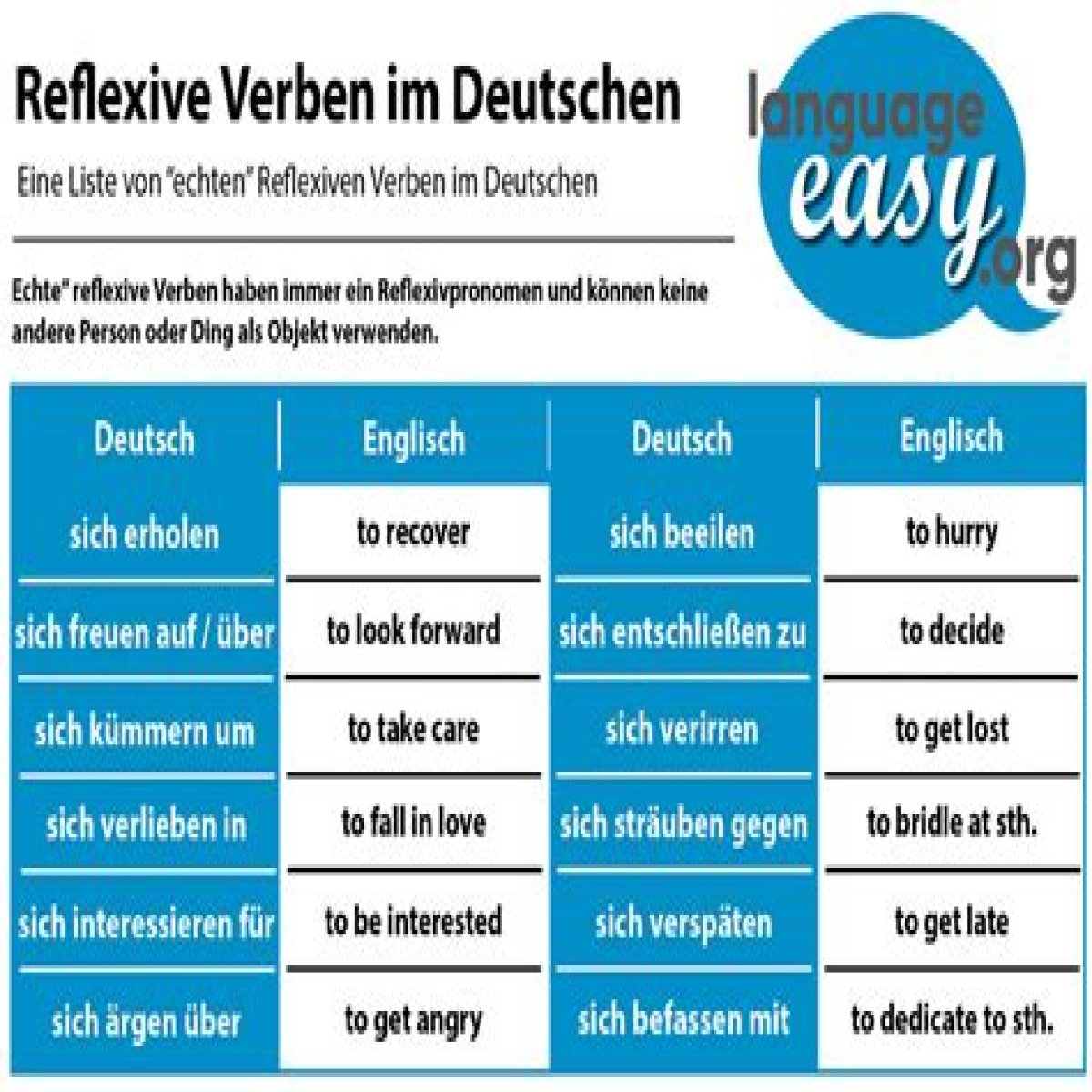What is reflexive Verben in German?
Reflexive verbs – Easy Learning Grammar German. A reflexive verb is one where the subject and object are the same, and where the action ‘reflects back’ on the subject. Reflexive verbs are used with a reflexive pronoun such as myself, yourself and herself in English, for example, I washed myself; He shaved himself.
What are reflexive pronouns in German?
The German Reflexive Pronouns
| Subject Pronoun | Reflexive Pronoun | Translation |
|---|---|---|
| er/sie/es | sich | himself/herself/itself |
| wir | uns | ourselves |
| ihr | euch | yourselves |
| sie | sich | themselves |
Is Aufstehen reflexive?
aufstehen (ouf-shtey-en) (to get up) (separable prefix) sich duschen (zeeH doohsh-en) (to take a shower) (reflexive)
Where Do reflexive pronouns go in German?
reflexive verbs must include the object of the action. This is called a reflexive pronoun. the reflexive pronoun goes immediately after the verb. the infinitives of reflexive verbs always include the pronoun sich.
How do reflexive pronouns work in German?
Reflexive pronouns are used when the person taking the action (<– the subject) is the same person who is receiving the action (<– the object). If there is just ONE object in the sentence, default to putting it into the accusative. BUT ‘dative verbs’ that are optionally reflexive will take dative objects, of course.
Does English have reflexive verbs?
Reflexive verbs are a unique category of verbs. That’s because reflexive verbs in English aren’t their own unique word, nor do they have a special conjugation pattern. Instead, you must depend on other words within a sentence in order to identify a reflexive verb.
Is Aufregen a reflexive verb?
„aufregen“: reflexives Verb.
Is verstehen a reflexive verb?
With reflexive verbs , eg sich verstehen (to get on with someone), the reflexive pronoun must always come immediately after the verb, followed by nicht: wir verstehen uns – we get on > wir verstehen uns nicht – we do not get on. wir verstehen uns gut – we get on well > wir verstehen uns nicht gut – we do not get on …
What are reflexive pronouns in English?
A reflexive pronoun is a specific type of pronoun that is used for the object of a verb when it refers to the same noun as the subject of that verb. In English, these are the pronouns that end with “self” or “selves”: e.g., “himself,” “myself,” “ourselves,” etc.
Where do we use reflexive pronouns?
Grammar explanation. Reflexive pronouns are words like myself, yourself, himself, herself, itself, ourselves, yourselves and themselves. They refer back to a person or thing. We often use reflexive pronouns when the subject and the object of a verb are the same.
What are 10 reflexive verbs?
List of reflexive verbs:
- aburrirse – to get bored.
- acercarse – to get close to.
- acordarse de – to remember.
- acostarse – to go to bed.
- acostumbrarse a – to get accustomed to (to get use to)
- afeitarse – to shave.
- aficionarse a – to become interested in.
- alegrarse – to become (be) happy.
